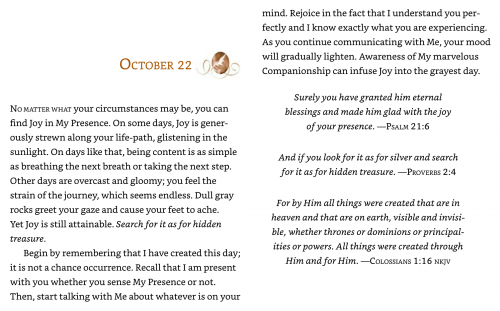The Dark Nights
Thursday, October 22, 2020
His silence is a kiss,
His presence an embrace.
But now he is fading, fading.
And I am alone . . .
—Thomas Keating, “Loneliness in the Night”
I don’t think anyone can get to my (Richard’s) age without deeply empathizing with the sense of loss and grief—personal and spiritual—that Thomas Keating articulates in this poem. Cynthia Bourgeault does an excellent job of describing the spiritual dark nights that both Thomas and John of the Cross (1542–1591) put so beautifully into poetry. Cynthia writes:
The sense of joyful, flowing oneness that so marks the final years of Thomas Keating’s life didn’t “just happen.” For most of us—including for Thomas himself—it comes at the end of a painful season of stripping and purification that has classically been called “the Dark Night of the Spirit.”
The name itself comes from the 16th-century Carmelite mystic St. John of the Cross, who up until this point has been the unquestioned authority on this excruciating passage. In this series of poems, Thomas Keating presses boldly into this forbidding terrain.
John’s classic spiritual roadmap actually specifies two dark nights. The first, called “the Dark Night of Sense,” typically comes fairly early in the journey. John saw its purpose chiefly as strengthening our capacity to endure temptation and weaning us from our dependency on spiritual consolations (the sweetness and even sensuous pleasure that often accompanies those early days of conversion). In Thomas’ contemporary psychological rendition, this first dark night relentlessly exposes our “emotional programs for happiness,” the hidden agendas and compensatory needs that drive our “false self system.” It thus accomplishes the first stage in the dismantling of the false self.
The second dark night comes much later in the journey and entails a much more radical and painful stripping that cuts to the very roots of the “false self system,” overturning the fundamental psychological and neurological hardwiring that drives the illusion of a separate selfhood. Its painful cost is that everything goes dark—“for the duration”—as we become increasingly unable to steer by the old binary operating system in our brains that always wound up turning God into an object (albeit a holy object) and in fact prioritized our experience of God over direct, unmediated union. Until the new operating system fills in, we are rather helpless, like chickens in molt, unable either to fly or lay eggs.
Believe it or not, this poem comes from a time far earlier in Thomas’ life. He once joked to me that he hadn’t written a poem since grade school. This is the poem! Even then, he was able to name the experience of the loss of tangible presence and withstand his solitude.
Something at first so concretely, robustly present is suddenly “fading, fading.” The substantial becomes insubstantial, presence fades to absence, and loneliness and longing dominate the emotional color palette. He is already intuiting, even as a young teenager, that the release from the loneliness and longing will not come from fulfillment of the original desire, but rather, through a mysterious inner alchemy that draws apparent opposites into an inner symbiotic unity. These are indeed the classic dark night waypoints, which Thomas returns to again and again—fundamental insights first glimpsed when he was still hardly more than a child.
Story from Our Community:
As I read today’s message [on Celtic Spirituality], I was transported back in time and distance to the cliffs of Tintagel [England], where I stood many years ago, looking westward. . . Reading today’s offering, I wept—it was so familiar and I haven’t heard it in so long! Reclaiming my role as a mystic, at 82, after a lifetime of “being in the world” with what that involves, I’ve always been drawn to the spiritual dimension of life. Now thanks to the most recent CAC meditations, I am closer to Home than I’ve ever been before in this lifetime. —Sarah K.
